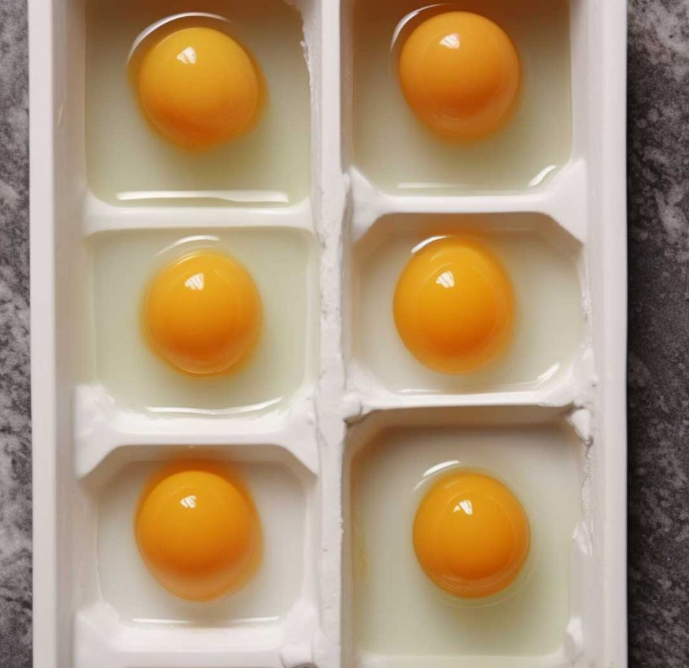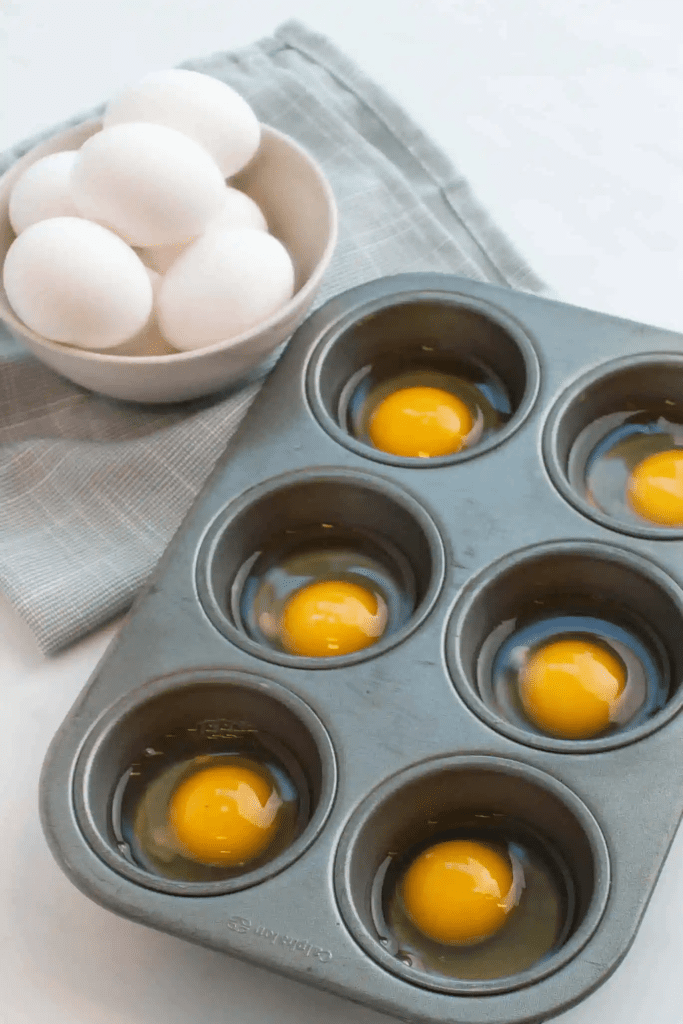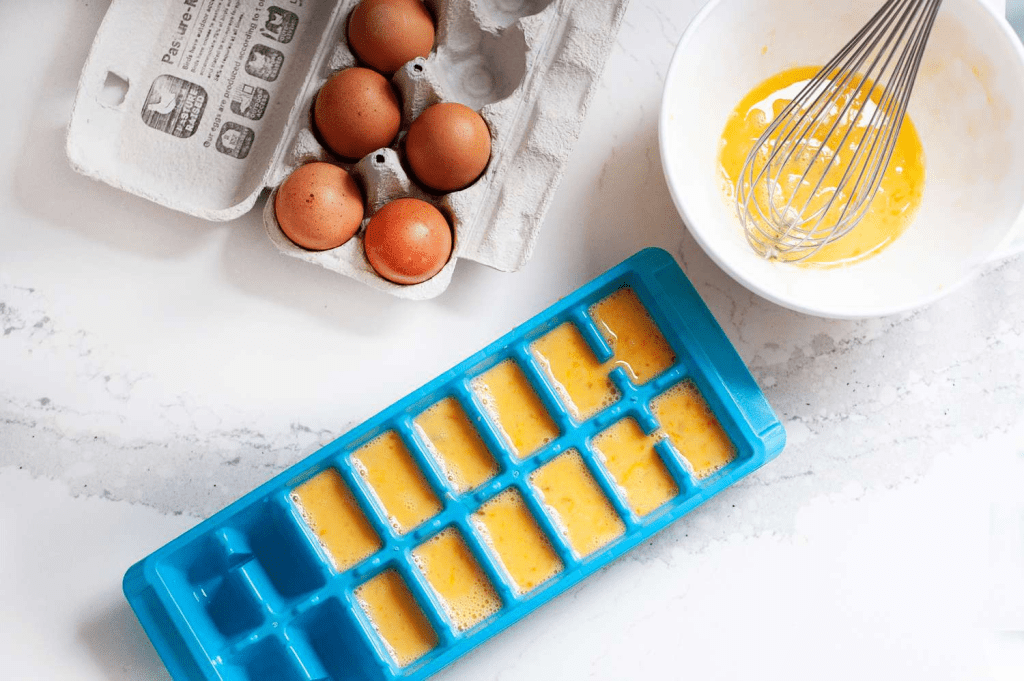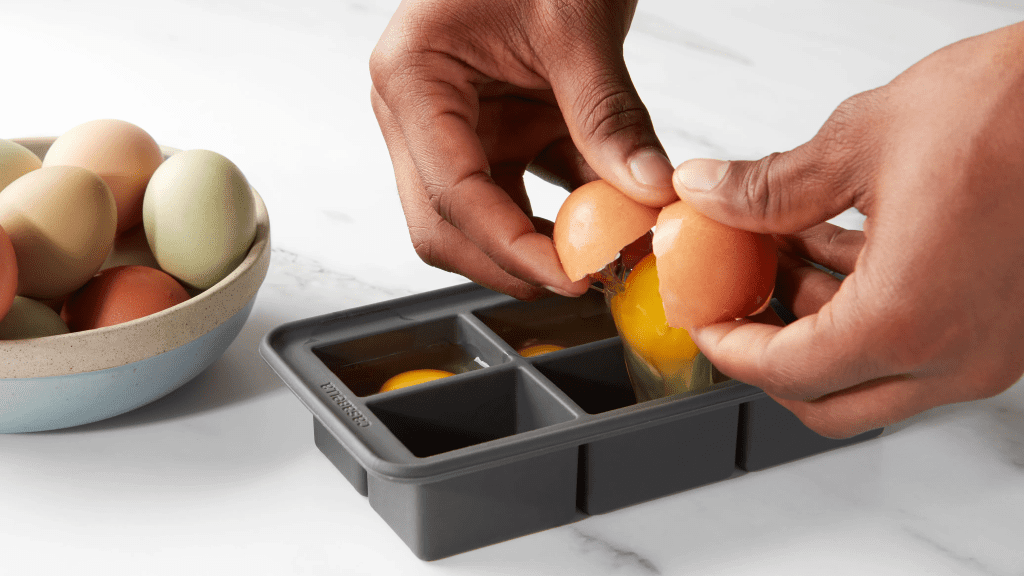Eggs are one of the most versatile ingredients you’ll find in any kitchen. Whether you’re whipping up a batch of cookies, scrambling breakfast for the family, or making a frittata for dinner, eggs are a staple. But have you ever thought about buying eggs in bulk and freezing them? It sounds unusual, but this clever hack can save you time, money, and reduce waste. In this article, we’ll explore why freezing eggs in an ice cube tray is such a game-changer and how you can do it right at home.
Why Buying Eggs in Bulk Makes Sense

Cost Savings
One of the most significant benefits of buying eggs in bulk is the cost savings. The more eggs you buy, the lower the per-unit price, especially when you purchase them in larger quantities. For households that consume eggs regularly or for those who love baking, buying in bulk can be a smart financial move. Plus, when you freeze eggs, you avoid the risk of letting them spoil, further reducing your overall grocery bill.
Convenience
We’ve all experienced that moment when you start a recipe, only to realize you’ve run out of eggs. Buying in bulk and freezing them ensures you always have eggs on hand, no matter what time it is. This convenience can be a lifesaver, especially when you need to throw together a quick meal or unexpected guests show up at your door. No more last-minute grocery store runs just for eggs!
Extended Shelf Life
Eggs have a relatively short shelf life in the refrigerator—about three to five weeks. But when frozen, eggs can last for up to six months without losing quality. This extended shelf life can help you cut down on food waste, giving you fresh-tasting eggs for months. It’s a smart way to preserve this essential ingredient without sacrificing quality.
How to Freeze Eggs Properly
Freezing eggs may sound odd, but it’s a simple process that anyone can master.
- Crack Eggs into an Ice Cube Tray: Crack one egg into each compartment of the tray. This allows you to easily measure out individual portions when needed.
- Freeze: Place the tray in your freezer and let the eggs freeze solid, which should take several hours.
- Transfer to a Bag: Once frozen, pop the egg cubes out of the tray and transfer them to a freezer-safe bag or container. Don’t forget to label the container with the date so you can keep track of how long the eggs have been stored.
How to Thaw Frozen Eggs
When you’re ready to use your frozen eggs, it’s important to thaw them properly to preserve their texture and flavor. Here are a few methods you can use:
- Room Temperature: Leave the frozen egg cubes in a bowl at room temperature until thawed, which should take about 30 minutes.
- In the Refrigerator: Plan ahead and thaw your eggs overnight in the fridge. This method is the safest and ensures the best texture.
- Cold Water Method: For a quicker solution, place the frozen eggs in a sealed bag and submerge them in cold water. Change the water every 30 minutes until thawed.
- Microwave: If you’re really in a rush, you can thaw eggs in the microwave using the defrost setting, but be careful not to cook them during the process.
Using Thawed Eggs in Your Cooking

Once your eggs are thawed, they’re ready to use in a variety of dishes. Keep in mind that while thawed eggs work well in most recipes, the texture might be slightly different, so they’re best for scrambled eggs, baking, or other recipes where texture isn’t critical.
Scrambled Eggs
Thawed eggs are perfect for scrambled eggs. Whisk them with a pinch of salt and pepper, and cook them in a little butter or oil over medium heat. The result is fluffy, delicious scrambled eggs in no time.
Omelets
For a quick breakfast or dinner, use thawed eggs to make omelets. Add your favorite fillings like cheese, veggies, or ham for a hearty meal.
Baking
One of the best uses for frozen eggs is in baking. Whether you’re making cookies, cakes, or muffins, thawed eggs will perform just like fresh eggs. Simply measure and mix them into your batter as the recipe calls for.
Frittatas and Casseroles
Frittatas and casseroles are another great way to use thawed eggs. These dishes are forgiving in terms of texture, making them ideal for eggs that have been frozen.
Is Freezing Eggs a Good Idea for Everyone?

While freezing eggs offers many benefits, it’s not the perfect solution for every household. Here are a few factors to consider before adopting this hack.
Quality Considerations
While frozen eggs retain their nutritional value, their texture can change slightly after thawing. They may become a bit watery, which could affect the outcome of certain recipes, like poached or sunny-side-up eggs. It’s best to use thawed eggs in recipes where the texture is less critical, such as in scrambled eggs or baking.
Storage Space
Freezing eggs requires space in your freezer, so it’s essential to make sure you have enough room before buying in bulk. Ice cube trays and freezer-safe bags can take up valuable freezer real estate, so plan accordingly.
Proper Labeling

It’s easy to lose track of how long something has been frozen, especially if you freeze a lot of different items. Be sure to label your eggs with the freezing date so you can use them within the optimal time frame.
Conclusion: Is Freezing Eggs Worth It?
Freezing eggs is a smart, simple hack that can save you time, money, and reduce waste. Whether you’re buying eggs in bulk to take advantage of cost savings, or you want the convenience of always having eggs on hand, this method can make your life a little easier. While frozen eggs may not work for every recipe, they are perfect for scrambled eggs, omelets, baking, and more.
So, next time you find a great deal on eggs, don’t hesitate to grab an extra carton or two. With this freezing technique, you’ll always have eggs ready for your next culinary adventure, even months down the road.


